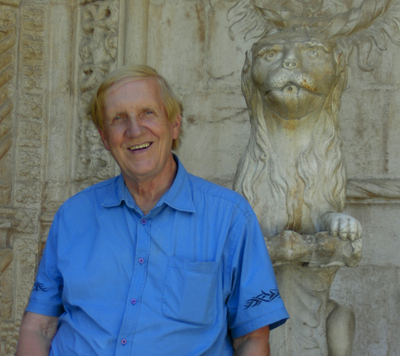-
86Is ‘Brain Death’ Actually Death?The Monist 76 (2): 175-202. 1993.The question ‘What is death?’ is by no means exclusively or primarily a question of medical science. It is, in the last analysis, a philosophical question. The philosopher’s role in the discussion of death is twofold: On the one hand, he has to explore those highly intelligible and essentially necessary aspects of death which no other human science investigates. This task includes a phenomenology of life and death, an ontology and metaphysics, as well as a philosophical anthropology of death. It…Read more
-
78In Defense of Free WillReview of Metaphysics 65 (2): 377-407. 2011.Libet considers “positive free voluntary acts” as mere illusions, admitting free will only as Veto. This essay shows seven ways by which we can gain evident knowledge about positive and negative free will, through: (1) the immediate evidence of free will in the cogito, (2) the light of the necessary essence of free will, (3) the experience of moral “oughts” in whose experience freedom is co-given, (4) any denial of human free will entails its assertion or recognition, (5) the objects and subject…Read more
-
1Gott als Gottesbeweis: eine phänomenologische Neubegründung des ontologischen ArgumentsUniversitatsverlag C. Winter. 1996.
-
2
-
10Christian Philosophy and Free WillSt. Augustine's Press. 2014.Following an ardent debate in the 1930s on the question over whether something like a "Christian philosophy" exists, as Etienne Gilson, Jacques Maritain, and others held, the term was used by many thinkers and rejected by many others, not only by Heidegger who called it a contradiction in terms, an "iron wood," but also by Thomists who wanted to see philosophy and Christian faith strictly separated. Seifert analyses five understandings of the term "Christian philosophy" which have never been exp…Read more
-
64PREFACE Towards the end of his important article 'What is Phenomenology?" Adolf Reinach writes: When we wish to break with all theories and constructions in ...
-
114Consciousness, mind, brain, and deathIn C. Machado & D. E. Shewmon (eds.), Brain Death and Disorders of Consciousness, Plenum. pp. 61--78. 2004.
-
37In an enlightening dialogue with Descartes, Kant, Husserl and Gadamer, Professor Seifert argues that the original inspiration of phenomenology was nothing other than the primordial insight of philosophy itself, the foundation of philosophia perennis . His radical rethinking of the phenomenological method results in a universal, objectivist philosophy in direct continuity with Plato, Aristotle and Augustine. In order to validate the classical claim to know autonomous being, the author defends Hus…Read more
-
1Can neurological evidence refute free will?: the failure of a phenomenological analysis of acts in Libet's denial of "positive free will"Pensamiento 67 (254): 1077-1098. 2011.
-
6Vom Wahren und Guten: Festschrift für Balduin Schwarz zum 80. Geburtstag (edited book)Verlag St. Peter. 1982.
-
43A vontade como perfeição pura e a nova concepção não-eudemonística do amor segundo Duns ScotusVeritas – Revista de Filosofia da Pucrs 50 (3): 51-84. 2005.Este estudo tem por objeto a filosofia scotista dos transcendentais, em especial a filosofia dos transcendentais como “perfeições puras”. Isso levará a uma consideração particular da “liberdade” como uma perfeição pura, bem como à concepção de um novo conceito de amor, não presente no eudemonismo aristotélicotomístico. PALAVRAS-CHAVE – Duns Scotus. Filosofia dos transcendentais. Perfeições puras. Liberdade. Amor. Crítica ao eudemonismo. ABSTRACT The object of this study is Scotus’s philosophy of…Read more
-
Abortion and euthanasia as legal and as moral issues: Some reflections on the relationship between morality, church and stateBioethics Update, Proceedings of 1987 Annual Conference on Bioethics, St. Vincents Bioethics Centre, Melbourne. forthcoming.
-
Ludwig Maximilians Universität, MünchenFaculty of Philosophy, Philosophy of Science and Study of ReligionSenior Lecturer
Areas of Specialization
| Metaphysics and Epistemology |
| Value Theory |
| Philosophy, Misc |
Areas of Interest
| Metaphysics and Epistemology |
| Value Theory |
| Philosophy, Misc |
